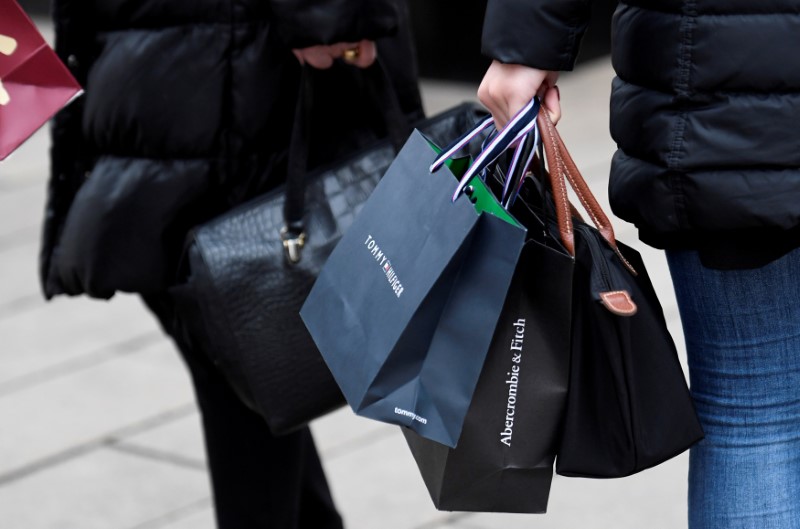BERLIN (Reuters) - German retail sales rose more than expected in April after four consecutive monthly drops, data showed on Wednesday, suggesting that household spending will support growth in Europe's biggest economy in the second quarter.
Private consumption has become a key growth driver in recent years as German consumers benefit from record-high employment, rising real wages, strong job security, moderate inflation and low borrowing costs.
The volatile indicator, which is often subject to revision, showed retail sales rose by 2.3 percent on the month in real terms, the Federal Statistics Office said.
It was the strongest monthly increase since October 2016 and beat the Reuters consensus forecast for a 0.7 percent rise. It followed an upwardly revised drop of 0.4 percent in March.
On the year, retail rose by 1.2 percent, slightly weaker than the Reuters consensus forecast for a 1.3 percent increase.
A breakdown of the year-on-year data showed sharp increases in sales of clothing, shoes and other items such as books and jewellery. Online retail sales also surged.
The retail sales data came after a GfK survey published last week showed the mood among German consumers deteriorated further heading into June to reach the lowest level so far in 2018.
Household spending contributed 0.2 percentage points to a quarterly gross domestic product expansion rate of 0.3 percent in the first quarter.

Despite uncertainties sparked by the prospect of a trade dispute between Europe and the United States, the government expects consumers to remain a key pillar of support for the economy this year. Berlin forecasts 2.3 percent growth for 2018.